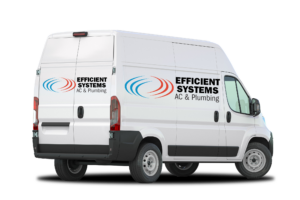Are you getting ready to install a new furnace in your home? If so, you probably have some questions about how gas and electric furnaces differ from each other. The more you know about these two types of furnaces, the easier it will be to decide which type is the right choice for your home.
Besides the obvious difference of how they’re powered, gas and electric furnaces have many other variances. Here are a few things you should know about gas versus electric furnaces.
Understanding gas furnaces
Gas furnaces use either propane or natural gas for fuel. Natural gas is the most common in standard homes. In order to install a gas furnace in your home, you must have a gas connection.
A gas furnace sends fuel to a combustion chamber. Once there, the fuel is ignited to generate heat. A heat exchanger separates the internal combustion chamber from the air outside of it. Once the air in the chamber is heated, it is pushed through your home’s air ducts with help from a blower.
As the heated air fills your home, it begins to raise the temperature. The temperature you set on your thermostat determines how warm your gas furnace will make your home.
Benefits of gas furnaces
- Gas furnaces offer many benefits. Here are a few:
- Cost-effective operation
- Less impacted by outages in power
- Environmentally friendly
One drawback of gas furnaces is that they have the potential of malfunctioning and allowing gas to leak into your home. Fortunately, modern gas furnaces have safety sensors inside which help maintain the safety of the combustion process and alert homeowners if there’s a problem.
Understanding electric furnaces
Electric furnaces operate on a simple premise. They heat the air by running it through heating elements before blowing it through the ductwork. Think of an electric furnace as an oversized space heater and you’ll have an easier time understanding how it works.
Benefits of electric furnaces
Although electric furnaces are more susceptible to power outages, they have their own set of unique benefits. These include:
- Longer lifespan in general than gas furnaces
- Lower upfront costs
- No need for a gas connection
Many electric furnaces are just as efficient as gas furnaces. They also offer reliable heating for your home without necessitating that you install a gas line connection.
Deciding which option is right for you
Only you can determine whether a gas or electric furnace system is the best choice for your needs. You should carefully consider the benefits and drawbacks of each when making your decision.
If you have neighbors with either type of furnace, don’t hesitate to talk to them and ask them about their experiences. When it comes right down to it, though, both types of furnaces can effectively heat your home.
Contact Efficient Systems
Do you still have questions about the differences between gas and electric furnaces? We’d love to explain them both in detail to you. Contact our team at Efficient Systems today to learn more about the types of furnaces we install or to request service on your existing HVAC system.










